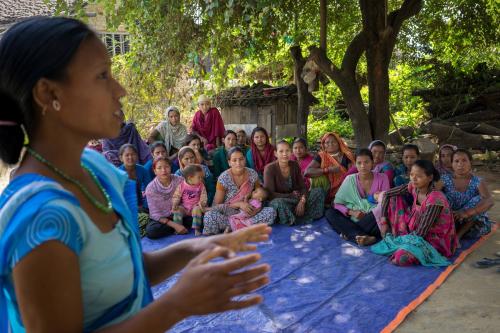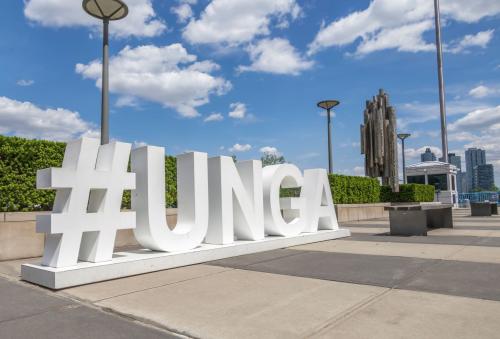

12:00 pm EDT - 2:00 pm EDT
Past Event
12:00 pm - 2:00 pm EDT
Washington, DC
On September 12, 2011, the Project on U.S. Relations with the Islamic World hosted a luncheon discussion with Karen Armstrong, author, most recently, of The Case for God and Twelve Steps to a Compassionate Life. Armstrong gave a few introductory remarks before answering questions from participants.
Armstrong emphasized that, even ten years after the events of 9/11, the West is still struggling in the so-called battle for the “hearts and minds” of those living in the Muslim world. She suggested that westerners need to better understand Islam and its history, not from Islamists or experts but from Muslims themselves. She also stated that recognizing the suffering of the “other” is an important step in building bridges between the western and Muslim worlds. And briefly touching on the recent events in the Arab world, Armstrong cautioned that western publics and policymakers should not expect a sudden emergence of secular political systems, noting that it took European countries hundreds of years and a lot of bloodshed to fully attain secular, democratic systems of governance.
Armstrong also talked about her initiative, the “Charter for Compassion,” a collaborative effort to instill compassionate thinking and action into religious and political life. The initiative—and the charter on which it is based, written by leading religious scholars from six world traditions—has been introduced in various projects in Pakistan and Jordan and has been well received, especially among business leaders. When asked if there were challenges in relaying a message of compassion in Pakistan, Armstrong insisted that the Charter had been widely recognized there as deeply resonant with the Islamic ethos and that indeed Pakistan had become one of the great leaders of the Charter. “The political situation in Pakistan and the fact that narrower interpretations of Islam, such as Wahhabism and Deobandism, had taken strong hold in the country meant that there were many challenges and that progress could not be swift. It had taken thirty-five years for the country to get into its current state and we would not see concrete results for at least ten years,” Armstrong said. She added that the militancy in Pakistan is not due to religion but instead to socio-economic problems and the geostrategic issues that have emerged as a result of statehood and the decades-long instability in Afghanistan. Armstrong also addressed other issues that participants raised. She emphasized the need for nuance in combating anti-Muslim sentiment, spoke about how suffering and the effects of colonialism need to be recognized, and stressed that religious institutions, especially at the local level, must be included in the conversation about compassion.
12:00 pm - 2:00 pm
On Monday, September 12, the Project on U.S. Relations with the Islamic World hosted a luncheon discussion with Karen Armstrong, author, most recently, of The Case for God and Twelve Steps to a Compassionate Life. Referencing the relationship between the Western and Muslim worlds post-9/11, Armstrong stressed the importance of compassion as a step toward building mutual understanding.

Amna Qayyum
October 25, 2024

Brahima Sangafowa Coulibaly, Landry Signé, George Ingram, Priya Vora, Rebecca Winthrop, Caren Grown, Belinda Archibong, Brad Olsen, Jennifer L. O’Donoghue, Sweta Shah, Ghulam Omar Qargha
September 19, 2024

Masood Ahmed, Dany Bahar, Amar Bhattacharya, Nancy Birdsall, Brahima Sangafowa Coulibaly, Hafez Ghanem, Carol Graham, Homi Kharas, Domenico Lombardi, Jacques Mistral, Galip Kemal Özhan, Zia Qureshi, Vera Songwe, Sebastian Strauss
October 2, 2023